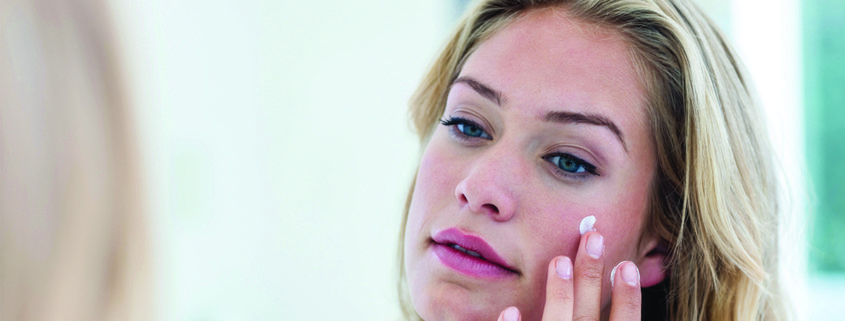Why Your Skin Care Products Can Cause a Hormone Imbalance (and a book for your teenage daughter)
Choosing skin care products is difficult enough. Find your skin type. Research popular skin care lines. Start (and stick to) a daily routine.
Add interpreting product labels, and you might as well throw in the makeup wipes.
We get it. We’re all trying to slow down the aging process, let alone find a safe, miracle product to do it.
Research on toxins and harmful chemicals in everyday products has come a long way. In fact, the European Union Cosmetics Regulation has banned over 1300 substances from use in cosmetics. But, by comparison, the U.S. Food and Drug Administration (FDA) has banned 11.
Nope. That wasn’t a typo. It isn’t clear why so many harmful ingredients are permitted in U.S. products. However, we know the FDA does have little control and power in the cosmetics industry.
But, let’s back up a second. And lather on a foundation so you know why you should avoid harmful chemicals in your skin care products.
First, there are two types of aging: intrinsic and extrinsic. Extrinsic aging is from ultraviolet radiation, lifestyle, and pollution. Mostly controllable. Intrinsic aging is caused by your biological clock — genetic mutations, increased inflammatory signals, decreased lipid production and hormone levels. Sometimes controllable.
The endocrine system is one of the most important factors in aging. It produces and regulates hormones, chemical messengers in the ovaries, adrenal glands, and thyroid glands.
Hormones control or regulate many biological processes, including blood sugar control, the differentiation, growth, and function of reproductive organs, and body growth and energy production.
Returning to those toxins banned in the E.U. (but not the U.S.).Those include lead, phthalates, formaldehyde, parabens, and triclosan. These are endocrine disrupting chemicals (EDCs). They interfere with the production, transport, breakdown, binding, and elimination of your hormones.
This interference could be linked to infertility, lowered sperm counts, obesity, diabetes, thyroid imbalance, and certain types of cancers.
While skin products are topical, your skin has pores and is highly absorbent. The product leaches into the lower layers of your skin and makes its way into your bloodstream. Changes may occur inside that cause distress and abnormality in your endocrine system.
A subcategory of EDCs is xenoestrogens. When they get inside our body, they can mimic natural hormones and increase the total amount of estrogen, causing estrogen dominance. They aren’t biodegradable and can be stored in your fat cells.
Remember that as estrogen fades, your skin produces less collagen and elastin. It gets thinner, drier, and more wrinkled. That’s why most people turn to anti-aging skin creams which contain xenoestrogens.
Because they can partially bind to estrogen receptors, xenoestrogens work as anti-aging agents. But, they bind incompletely, which may be part of the danger. The incomplete binding may activate the receptor to do something harmful, rather than beneficial.
Spectacular Skin in Memphis, TN is owned by a licensed medical aesthetician, Teri Lewis. She’s adamant about using products that have a natural base and don’t contain chemically augmenting ingredients.
“It’s a catch-22, the products that work best are hormone-disrupting,” says Teri Lewis, “But, look for the company that has the least amount of additives and a lot more natural ingredients.”
Since there are concerns about the link between EDC’s and reproductive cancers in women, a smarter choice is to use a compound with proven, safer ingredients.
Lewis recommends checking your skincare product ingredients using The Environmental Working Group’s website, which rates personal care products based on ingredients and chemical safety.
“[Choosing skincare products] is not something you should read about and pick yourself,” advises Teri, “Consult with someone who knows what they’re doing. If you’re having skin and hormone problems, you need to be seen by a professional.”
Here are some other ways you can avoid harmful toxins in your skin care products:
Book Recommendation from Dr. Heather Pearson Chauhan (to help Your Young Daughters/Granddaughters):
There’s a book called, The New Puberty: How to Navigate Early Development in Today’s Girls written by Louise Greenspan, MD, and Julianna Deardorff, Ph.D. It explains the potential causes and consequences of early puberty in girls. Part of that discussion has to do with sugar and weight gain, but it’s also due to hormone-mimicking chemicals in our household products.

